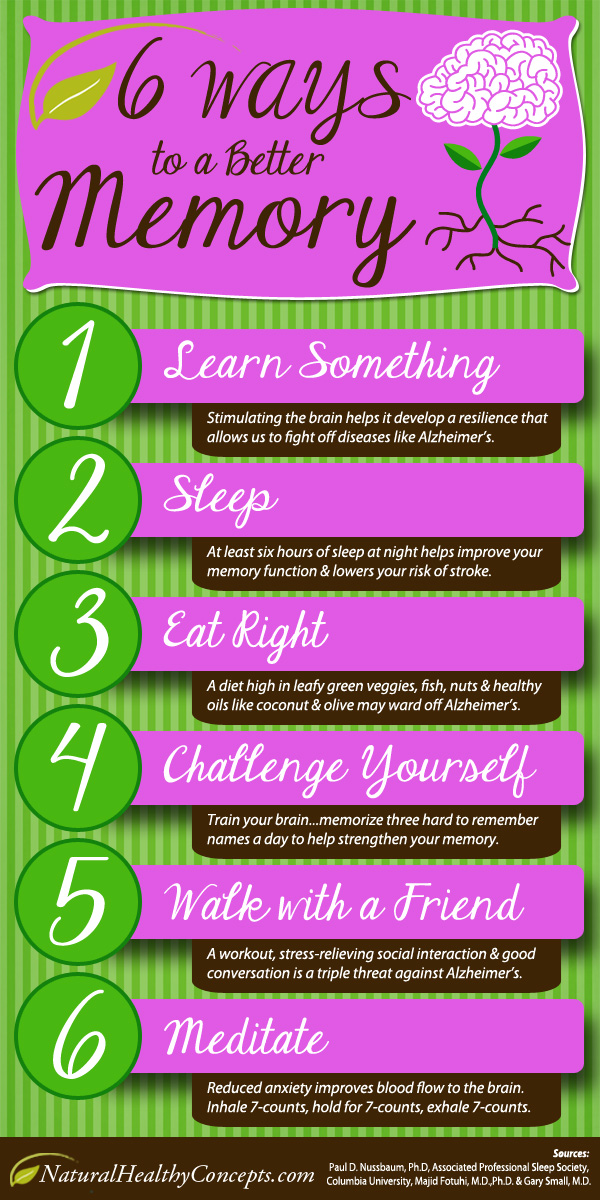Wish you had a better memory? Memory improvement tips can help you unlock the secrets to enhancing your brain’s capacity for recall. From everyday strategies to memory techniques, these insights are designed to boost your brain function and improve your ability to retain important information. Whether you’re studying for an exam or trying to remember names and faces at a social event, effective memory improvement tips can lead to better recall with less effort. Research shows that regular practice, mental exercises, and lifestyle changes contribute significantly to enhancing memory performance.
Are you seeking ways to enhance your cognitive abilities? Understanding how to enhance your memory can make a significant difference in your daily life. By exploring various brain enhancement strategies, you can employ memory drills and quizzes that stimulate mental agility and improve retention rates. Utilizing these approaches not only helps in remembering crucial information but also strengthens overall brain functionality. Embracing these innovative methods can lead to an impressive improvement in your recollection skills and psychological wellbeing.
Proven Memory Improvement Tips
To enhance your memory, it’s essential to adopt proven techniques that not only improve recall but also strengthen overall brain function. Research suggests engaging in physical exercise, such as aerobic workouts, can significantly benefit cognitive abilities. Exercise stimulates the production of growth factors that promote neurogenesis, particularly in the hippocampus, a brain region critical for memory. Consequently, regular physical activity serves as an effective strategy for individuals looking to enhance their memory capabilities.
In addition to physical exercise, utilizing memory techniques like mnemonic devices can assist individuals in retaining information more effectively. For example, using acronyms or forming vivid mental images can make it easier to recall complex information. Incorporating playful memory quizzes into your routine can also make learning enjoyable, while sharpening your cognitive skills. The combination of these methods can lead to substantial improvements in recalling information when it matters most.
How to Improve Memory Through Lifestyle Changes
Beyond techniques, certain lifestyle changes can dramatically improve memory function. Maintaining a balanced diet rich in antioxidants, vitamins, and omega-3 fatty acids is crucial for optimal brain health. Foods such as berries, nuts, and fish not only nourish the brain but also enhance cognitive function, making it easier to remember details. Moreover, staying hydrated aids in maintaining concentration and improving recall abilities.
Sleep also plays a pivotal role in memory enhancement. Quality sleep allows the brain to consolidate the information learned throughout the day. In fact, studies show that sleep deprivation can quickly lead to forgetfulness and decreased mental agility. Establishing a regular sleep schedule and incorporating relaxation techniques can contribute significantly to better memory and increased brain function.
Memorable Memory Techniques to Try
Utilizing effective memory techniques can make a substantial difference in how we retain and recall information. The well-known ‘method of loci’ or ‘memory palace’ strategy is one such technique that has been employed since ancient times. This involves associating the information one wishes to remember with specific locations in a familiar place, allowing for easier retrieval by visualizing the journey through that space. This technique not just aids in memorization but also engages the brain in a vivid, tactile way.
Another powerful memory tool is the practice of spaced repetition. This involves reviewing information at increasing intervals, which has been shown to improve recall significantly. By revisiting material over time, individuals can counteract the forgetting curve and reinforce the neural pathways associated with the information, leading to lasting memory. Combining these techniques can lead to remarkable gains in memory retention and recall.
Memory Quizzes: An Engaging Approach to Recall
Memory quizzes are an engaging and effective way to sharpen recall and test one’s knowledge. These quizzes can cover various topics, from historic dates to brain science, providing a fun yet challenging way to connect and retain information. Incorporating such quizzes into daily or weekly routines can motivate individuals to stretch their memory efforts and stimulate better cognitive function.
Moreover, research shows that actively retrieving information through quizzing leads to stronger memory retention compared to passive review methods. This phenomenon, known as the testing effect, suggests that the more frequently one practices recalling information, the more likely it is to be remembered in the future. Regularly participating in memory quizzes can thus serve as both an enjoyable activity and a powerful learning tool.
Enhancing Brain Function for Better Recall
Enhancing brain function is key to achieving better recall and memory retention. Engaging in brain-training exercises, such as puzzles, crosswords, and memory games, can stimulate neural connections and improve cognitive capabilities. Continued mental challenges contribute to brain plasticity, brightening the brain’s ability to form new memories and enhance the quality of recall.
Additionally, mindfulness and meditation practices have been shown to play a vital role in brain health. These practices not only reduce stress but also increase focus and clarity of thought, facilitating improved memory performance. By incorporating mindfulness exercises into daily life, individuals can create a more conducive environment for memory retention.
The Impact of Stress on Memory Recall
Stress can have a significant detrimental impact on memory recall and overall cognitive performance. During stressful times, the brain’s fight-or-flight mechanism can cloud judgment and hinder the ability to retrieve memories accurately. While some stress may enhance memory for critical details, chronic stress can lead to cognitive decline and increased forgetfulness.
To combat the negative effects of stress on memory, practicing stress-reducing techniques such as deep-breathing exercises or yoga can be very beneficial. Reducing stress levels allows individuals to improve focus and recall abilities, leading to a more efficient memory function. Learning to manage stress effectively is essential for fostering an environment where memory can thrive.
Understanding Memory Formation
Understanding how memory is formed can empower individuals to implement better strategies for recall and retention. Memory formation occurs in several stages, starting with encoding, where the brain processes information and forms new memories. The information is then stored and, upon retrieval, can be brought back to consciousness. This sequential process highlights the importance of using multiple techniques to optimize each stage.
For instance, enhancing encoding can be achieved through techniques such as making meaningful associations or engaging multiple senses during learning. This ensures that the information is more deeply processed and can be easily retrieved later when needed. Therefore, strengthening understanding of memory formation can lead to more targeted and effective strategies for improving memory.
Nutrition’s Role in Memory Enhancement
Nutrition plays a pivotal role in the enhancement of memory and overall cognitive function. The brain requires a wide array of nutrients to function optimally, including omega-3 fatty acids, antioxidants, and vitamins. Eating a well-balanced diet rich in whole foods supports brain health, thus supporting memory improvement efforts. Foods like fatty fish, berries, nuts, and green leafy vegetables contribute to better cognitive function and memory retention.
Furthermore, certain diets, such as the Mediterranean diet, have been linked to reduced cognitive decline and improved memory. This diet emphasizes fruits, vegetables, whole grains, and healthy fats while limiting red meat and sugar. By consciously choosing to consume brain-healthy foods, individuals can significantly enhance their cognitive performance and memory skills.
The Science Behind Forgetting
The science of forgetting is as fascinating as that of memory. Forgetting can occur due to various reasons such as interference, decay, or retrieval failure. Understanding these mechanisms can help individuals develop strategies to overcome challenges in memory recall. For example, the interference theory suggests that new information can displace old memory, leading to forgetting occurred. Strategies such as spaced learning can help mitigate this effect.
Another aspect to consider is decay, where memories fade if not accessed over time. Engaging with material consistently and using active recall can combat decay significantly. By choosing effective strategies to counteract forgetting, individuals can maintain clear and functional memories well into the future.
Frequently Asked Questions
What are effective memory improvement tips for better recall?
To enhance your memory and improve recall, consider using techniques such as spaced repetition, visualization, and the method of loci. Incorporating regular physical exercise and maintaining a healthy diet can also boost brain function enhancement. Additionally, engaging in memory quizzes can help reinforce your knowledge and identify areas for improvement.
How can I improve my memory through daily practices?
Daily practices for memory improvement include setting specific times for learning new information, practicing mindfulness to reduce stress, and using mnemonic devices. Consistent sleep patterns and mental exercises, like puzzles and memory quizzes, can further strengthen your retention and recall capabilities.
What memory techniques can help with studying for exams?
For effective studying, utilize memory techniques such as summarizing material in your own words, creating mind maps, and employing flashcards. Regularly spaced review sessions and practice quizzes are also beneficial for reinforcing information and improving long-term memory retention.
Can regular exercise really enhance brain function and memory?
Yes! Regular exercise has been shown to enhance brain function and memory by promoting the release of growth factors like BDNF, which supports synaptic plasticity. Activities such as aerobic exercises, strength training, and even stretching can significantly improve your overall cognitive health.
How do memory quizzes contribute to better recall?
Memory quizzes are an engaging way to assess your knowledge while reinforcing retention. They challenge your brain, making it easier to recall information later. Frequent quizzing can also enhance retrieval paths, which is essential for improving memory and recall during important tasks.
What lifestyle changes can improve my memory and cognitive function?
To improve memory and cognitive function, consider changes such as adopting a balanced diet rich in omega-3 fatty acids, staying hydrated, getting regular exercise, and ensuring adequate sleep. Reducing stress through meditation or relaxation techniques can also lead to better memory retention.
Is multitasking detrimental to memory improvement and brain function?
Yes, multitasking can severely hinder memory improvement. Studies suggest that focusing on one task at a time allows for better consolidation of information into long-term memory. Prioritizing tasks helps maintain cognitive clarity and enhances brain function.
What role does sleep play in memory improvement?
Sleep plays a crucial role in memory improvement as it facilitates the consolidation of new memories and information learned during the day. A good night’s sleep enhances recall processes and prepares your brain to absorb new knowledge better.
How can I create an effective memory palace for better recall?
To create an effective memory palace, visualize a familiar place, such as your home. Associate the information you wish to remember with specific locations within this place, creating vivid mental images. Walking through your memory palace in your mind will help enhance your recall ability significantly.
What are some common substances that may impair memory function?
Some common substances that impair memory function include excessive alcohol, cannabis, and certain medications. On the other hand, moderate caffeine consumption may improve focus and alertness, potentially aiding memory consolidation in some cases.
| Quiz Question | Options | Correct Answer | ||
|---|---|---|---|---|
| You’re more likely to master a new skill, such as playing tennis, if you practice: | a. Seven hours once a week b. One hour a day for seven days |
b. One hour a day for seven days | ||
| Six weeks of exercise can do which of the following? | a. Release growth factors in the brain b. Improve memory c. Enlarge the volume of the hippocampus d. All of the above |
d. All of the above |
Summary
Memory improvement tips are essential for enhancing your recall abilities, especially in daily life situations, such as remembering names or important information for exams. Implementing strategies like regular practice, engaging in physical activity, and utilizing memory techniques such as the method of loci can significantly boost memory performance. Additionally, maintaining a strong focus during tasks and ensuring proper rest can further enhance cognitive functions. Regularly applying these memory improvement tips will lead to a more effective and efficient memory.



